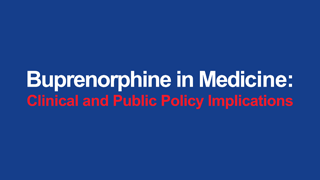A 12-week extension study to assess the safety and tolerability of naloxegol in patients with noncancer pain and opioid-induced constipation
DOI:
https://doi.org/10.5055/jom.2016.0360Keywords:
constipation, naloxegol, opioid-induced constipation, opioid receptor antagonist, safety, tolerabilityAbstract
Objective: To compare the long-term safety and tolerability of naloxegol with placebo in patients with opioid-induced constipation (OIC) and noncancer pain.
Design: Twelve-week, multicenter, randomized, double-blind, parallel-group phase 3 extension study (KODIAC-07, NCT01395524).
Setting: Clinical investigation centers in the United States.
Patients: Adult outpatients (N = 302) with confirmed OIC who had completed a 12-week pivotal phase 3 study (KODIAC-04, NCT01309841).
Interventions: Daily oral administration of naloxegol (12.5 and 25 mg) or placebo.
Main Outcome Measures: Adverse events (AEs), including treatment-related AEs, serious AEs, and AEs of special interest; changes from baseline to week 12 in pain scores, daily opioid dose, and symptoms and quality-of-life measurements.
Results: No important new AEs occurred during this extension study compared with KODIAC-04. AEs occurred more frequently with naloxegol 25 mg (41.2 percent) versus naloxegol 12.5 mg (34.0 percent) and placebo (33.0 percent). Treatment-emergent AEs occurring in >5 percent of patients in either naloxegol group during the treatment period were arthralgia (25 mg; 5.2 percent) and diarrhea (12.5 mg; 5.3 percent); two reported AEs attributable to opioid withdrawal syndrome in naloxegol groups were deemed unrelated to study medication. None of the gastrointestinal serious AEs was adjudicated as bowel perforation; one patient (naloxegol 12.5 mg) had an event adjudicated as a major cardiovascular event and was unrelated to study medication. Pain scores and daily opioid dose were unchanged, and improvements in symptoms and quality-of-life observed in KODIAC-04 were maintained throughout the extension study.
Conclusion: Naloxegol was generally safe and well tolerated in this 12-week extension study in patients with noncancer pain and OIC.
References
Brock C, Olesen SS, Olesen AE, et al.: Opioid-induced bowel dysfunction: Pathophysiology and management. Drugs. 2012; 72(14): 1847-1865.
Camilleri M: Opioid-induced constipation: Challenges and therapeutic opportunities. Am J Gastroenterol. 2011; 106(5): 835-842.
Panchal SJ, Müller-Schwefe P, Wurzelmann JI: Opioid-induced bowel dysfunction: Prevalence, pathophysiology and burden. Int J Clin Pract. 2007; 61(7): 1181-1187.
Pappagallo M: Incidence, prevalence, and management of opioid bowel dysfunction. Am J Surg. 2001; 182(5A suppl): 11S-18S.
Diego L, Atayee R, Helmons P, et al.: Novel opioid antagonists for opioid-induced bowel dysfunction. Expert Opin Investig Drugs. 2011; 20(8): 1047-1056.
Thomas J: Opioid-induced bowel dysfunction. J Pain Symptom Manage. 2008; 35(1): 103-113.
Bell TJ, Panchal SJ, Miaskowski C, et al.: The prevalence, severity, and impact of opioid-induced bowel dysfunction: Results of a US and European Patient Survey (PROBE 1). Pain Med. 2009; 10(1): 35-42.
Eldon MA, Song D, Neumann TA, et al.: NKTR-118 (oral PEGnaloxol), a PEGylated derivative of naloxone: Demonstration of selective peripheral opioid antagonism after oral administration in preclinical models. Poster 28 presented at: 18th Annual Clinical Meeting of the American Academy of Pain Management; 27-30 September, 2007; Las Vegas, NV.
Faassen F, Vogel G, Spanings H, et al.: Caco-2 permeability, P-glycoprotein transport ratios and brain penetration of heterocyclic drugs. Int J Pharm. 2003; 263(1-2): 113-122.
Chey WD, Webster L, Sostek M, et al.: Naloxegol for opioid-induced constipation in patients with noncancer pain. N Engl J Med. 2014; 370(25): 2387-2396.
Farrar JT, Young JP Jr. LaMoreaux L, et al.: Clinical importance of changes in chronic pain intensity measured on an 11-point numerical pain rating scale. Pain. 2001; 94(2): 149-158.
Culpepper-Morgan JA, Inturrisi CE, Portenoy RK, et al.: Treatment of opioid-induced constipation with oral naloxone: A pilot study. Clin Pharmacol Ther. 1992; 52(1): 90-95.
Himmelsbach CK: The morphine abstinence syndrome, its nature and treatment. Ann Intern Med. 1941; 15(5): 829-839.
Posner K, Brown GK, Stanley B, et al.: The Columbia-Suicide Severity Rating Scale: Initial validity and internal consistency findings from three multisite studies with adolescents and adults. Am J Psychiatry. 2011; 168(12): 1266-1277.
Frank L, Kleinman L, Farup C, et al.: Psychometric validation of a constipation symptom assessment questionnaire. Scand J Gastroenterol. 1999; 34(9): 870-877.
Marquis P, De La Loge C, Dubois D, et al.: Development and validation of the Patient Assessment of Constipation Quality of Life questionnaire. Scand J Gastroenterol. 2005; 40(5): 540-551.
Webster L, Chey WD, Tack J, et al.: Randomised clinical trial: The long-term safety and tolerability of naloxegol in patients with pain and opioid-induced constipation. Aliment Pharmacol Ther. 2014; 40(7): 771-779.
Becker G, Blum HE: Novel opioid antagonists for opioid-induced bowel dysfunction and postoperative ileus. Lancet. 2009; 373(9670): 1198-1206.
Bream-Rouwenhorst HR, Cantrell MA: Alvimopan for postoperative ileus. Am J Health Syst Pharm. 2009; 66(14): 1267-1277.
Published
How to Cite
Issue
Section
License
Copyright 2005-2025, Weston Medical Publishing, LLC and Journal of Opioid Management. All Rights Reserved.










